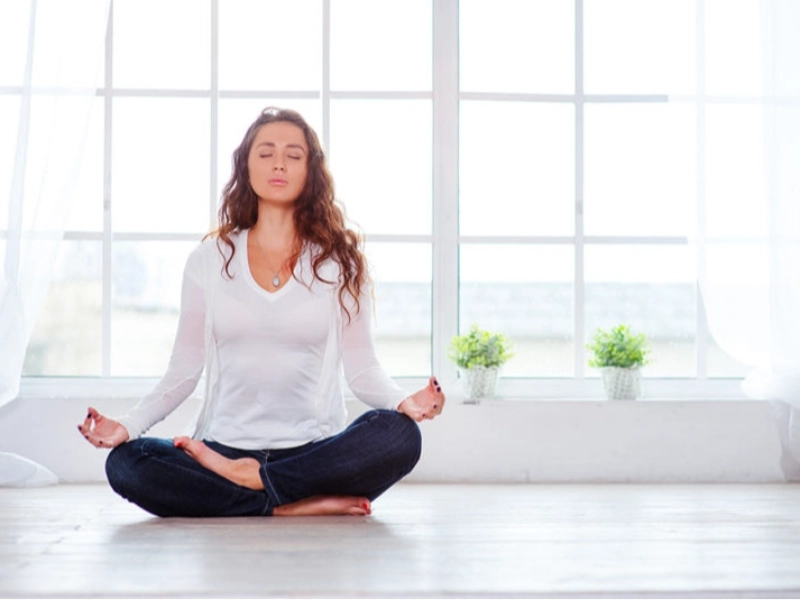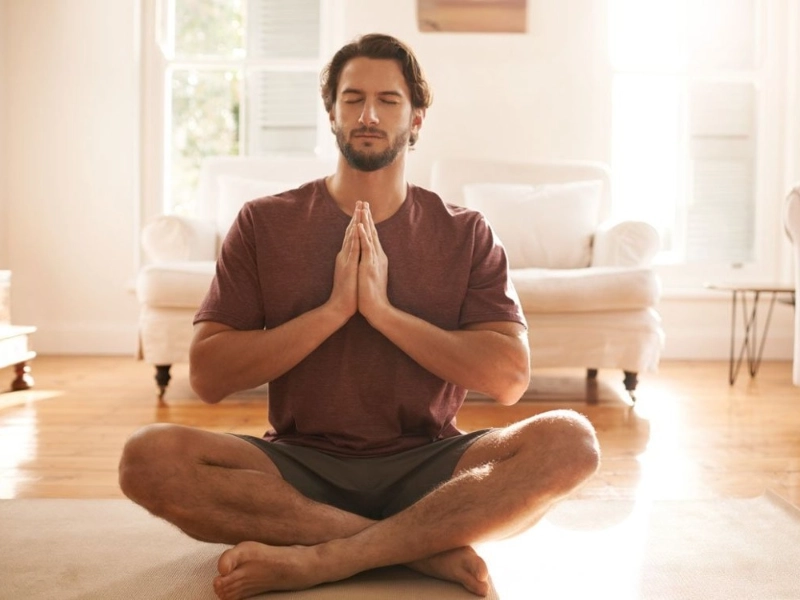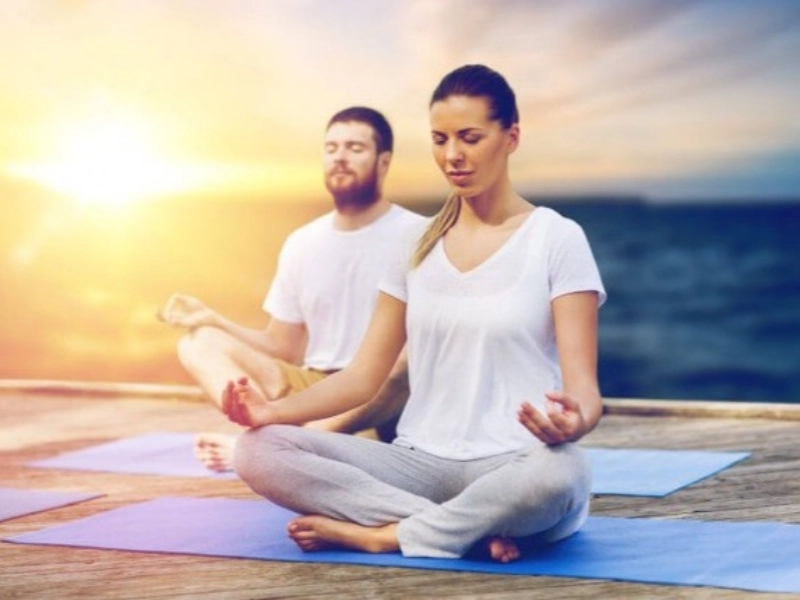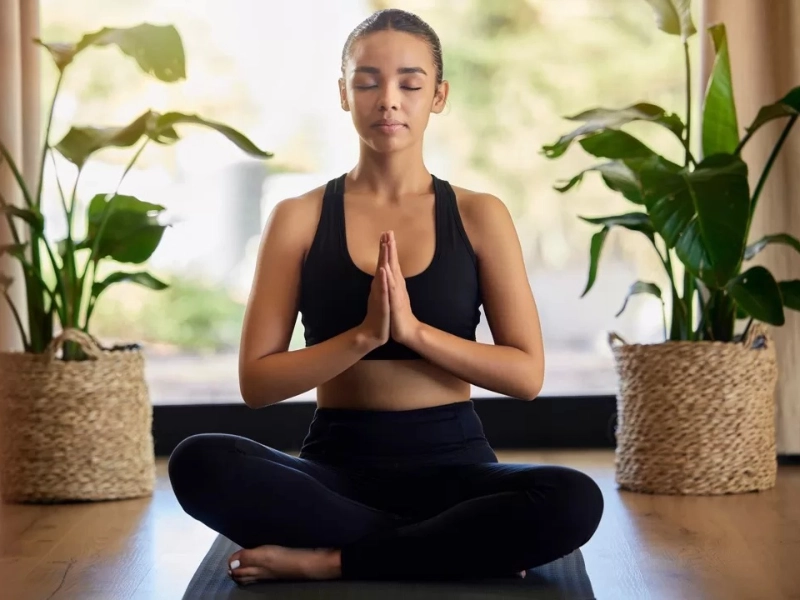The Advantages of Stress Reduction Through Meditation
Maintaining a regular meditation practice aids in stress reduction and calmness. Additionally, it can assist you in altering how your body reacts to stress and cultivating a more robust mindset towards it. You pay attention to your breath when you meditate. By doing so, you can ease muscle tension and lower the stress hormone cortisol, which raises blood pressure.
Concentrate

Unwinding
 The relaxation response that meditation elicits in the body is a major factor in its effectiveness as a stress reliever. You reach a deeply relaxed state known as the relaxation response, which reduces discomfort, slows digestion and metabolism, relaxes stiff muscles, and lowers breathing and heart rate.
Unlike many other forms of exercise, meditation doesn't require a gym membership or pricey equipment. A quiet place to sit and concentrate on your breathing is all you need. Finding a quiet, distraction-free location is helpful, but it's not always feasible. Thus, if you're having trouble finding a quiet place, consider engaging in progressive muscle relaxation. This two-step method teaches you to tense and relax various muscle groups in a methodical manner.
Research indicates that regular meditation lowers anxiety and sadness, lessens impulsive and careless behaviour, and enhances empathy for oneself and other people. Additionally, by lowering the body's synthesis of stress chemicals, it elevates mood. By reducing blood pressure, it can also aid in the physical signs of stress relief, which can help ward off heart disease and other illnesses.
The relaxation response that meditation elicits in the body is a major factor in its effectiveness as a stress reliever. You reach a deeply relaxed state known as the relaxation response, which reduces discomfort, slows digestion and metabolism, relaxes stiff muscles, and lowers breathing and heart rate.
Unlike many other forms of exercise, meditation doesn't require a gym membership or pricey equipment. A quiet place to sit and concentrate on your breathing is all you need. Finding a quiet, distraction-free location is helpful, but it's not always feasible. Thus, if you're having trouble finding a quiet place, consider engaging in progressive muscle relaxation. This two-step method teaches you to tense and relax various muscle groups in a methodical manner.
Research indicates that regular meditation lowers anxiety and sadness, lessens impulsive and careless behaviour, and enhances empathy for oneself and other people. Additionally, by lowering the body's synthesis of stress chemicals, it elevates mood. By reducing blood pressure, it can also aid in the physical signs of stress relief, which can help ward off heart disease and other illnesses.
Sentiment
 Numerous things, such as work pressures, financial worries, interpersonal disputes, and information overload, can lead to stress. Stress hormones are released as a result of these circumstances setting off the body's "fight or flight" reaction. Numerous health issues, including high blood pressure, irritable bowel syndrome, and post-traumatic stress disorder (PTSD), can result from this increased level of alertness.
By teaching the mind to stay in the now and concentrate on sensations rather than obsessing about regrets from the past or worries about the future, meditation enables people to take control of their emotions. This promotes mental toughness and stress relief.
Frequent meditation practice can also result in better mood, less depressive symptoms, and more empathy for other people. Mindfulness meditation, which focuses on being aware of your breathing and the physical aspects of your existence, is the most effective kind of meditation for lowering stress. It may also entail concentrating on pictures in your mind, such the waves in the ocean or the sun setting.
Numerous things, such as work pressures, financial worries, interpersonal disputes, and information overload, can lead to stress. Stress hormones are released as a result of these circumstances setting off the body's "fight or flight" reaction. Numerous health issues, including high blood pressure, irritable bowel syndrome, and post-traumatic stress disorder (PTSD), can result from this increased level of alertness.
By teaching the mind to stay in the now and concentrate on sensations rather than obsessing about regrets from the past or worries about the future, meditation enables people to take control of their emotions. This promotes mental toughness and stress relief.
Frequent meditation practice can also result in better mood, less depressive symptoms, and more empathy for other people. Mindfulness meditation, which focuses on being aware of your breathing and the physical aspects of your existence, is the most effective kind of meditation for lowering stress. It may also entail concentrating on pictures in your mind, such the waves in the ocean or the sun setting.
Self-knowledge
 Including meditation in your daily practice can increase your awareness of your thoughts, emotions, and actions. Increased fulfilment and better relationships can result from this increased awareness.
Although there are many different ways to meditate, most include learning to focus the mind and bring it back the centre when it wanders. Among the popular forms of meditation are:
To begin, locate a peaceful area where you may spend many minutes at a time sitting comfortably and without interruptions. Breathe deeply into your diaphragm while you relax your body and pay attention to your breathing. When you find yourself daydreaming, try to catch yourself and return your attention to your slow, deep breathing. Although it takes some getting used to, even a short daily meditation session can be beneficial.
Including meditation in your daily practice can increase your awareness of your thoughts, emotions, and actions. Increased fulfilment and better relationships can result from this increased awareness.
Although there are many different ways to meditate, most include learning to focus the mind and bring it back the centre when it wanders. Among the popular forms of meditation are:
To begin, locate a peaceful area where you may spend many minutes at a time sitting comfortably and without interruptions. Breathe deeply into your diaphragm while you relax your body and pay attention to your breathing. When you find yourself daydreaming, try to catch yourself and return your attention to your slow, deep breathing. Although it takes some getting used to, even a short daily meditation session can be beneficial.







